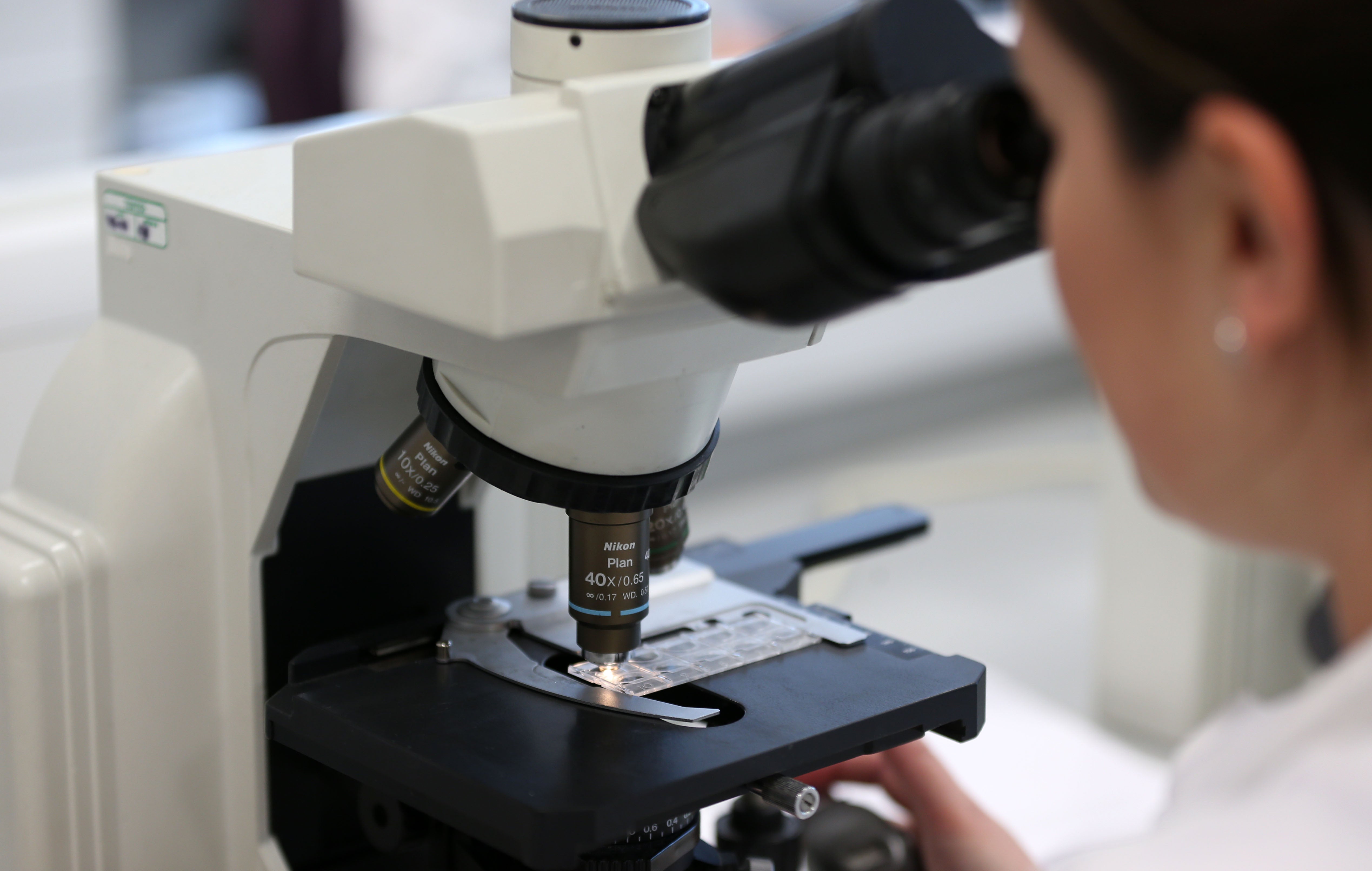‘Promising’ scientific discovery could lead to new leukaemia treatments
The main therapies to treat acute myeloid leukaemia have remained unchanged for decades.

A “promising” discovery could potentially lead to new treatments for leukaemia, experts have said.
Researchers hope the finding could pave way for new treatment options for some of the most vulnerable leukaemia patients – who are often told that they are unable to go through intensive treatments.
The team of experts, led by Dr William Grey and colleagues, examined cellular reactions to treatment after they “inhibited” a protein called CKS1.
Most drugs targeting acute myeloid leukaemia (AML) cause toxicity to blood stem cells called hematopoietic cells.
Dr Grey’s promising discovery could go on to provide a vital new treatment option for the most vulnerable leukaemia patients
These treatments can also fail to target leukaemic stem cells, which can lead to a patient relapsing.
To try to overcome these problems, Dr Grey and colleagues identified that inhibiting the action of CKS1, leukaemic stem cells can be successfully targeted without causing harm to normal, healthy stem cells.
Leukaemia UK said that the finding will provide valuable insights into the development of new treatments.
Leukaemia is a type of cancer which affects the white blood cells and some 10,000 patients are diagnosed with leukaemia every year in the UK, this includes 3,000 diagnosed with AML.
The charity said that despite greater understanding of the disease, the main therapies to treat AML have remained unchanged for decades.
And there are many patients, particularly older patients, who are told that they are not eligible for some of the most intensive treatments.
As a result, the prognosis is poor for many older patients with just 5% of AML patients over the age of 65 surviving five years or more.
Leukaemia UK said that the new finding, which has been published in Science Translational Medicine, suggests that by reducing the side effects of traditional chemotherapy, it may mean that some of these patients will be eligible for treatment.
Fiona Hazell, chief executive of Leukaemia UK, said: “There is a vital need to develop kinder and more effective treatments for acute leukaemias.
“By focussing on trying to improve outcomes for AML patients with the worst prognosis, research can help accelerate progress where it is most needed in order to save and improve more lives.
“Dr Grey’s promising discovery demonstrates the importance of continued research and could go on to provide a vital new treatment option for the most vulnerable leukaemia patients.”
Dr Grey, who now works at the University of York, is now exploring potential clinical trial options.
“We hope that this work will open new avenues of investigation into the protein dynamics of stem cells, and give us a better understanding of how stem cells work in our body and how they go wrong during disease,” he said.
“In doing so we hope that we can reveal new and more effective treatment targets that haven’t yet been discovered during the genetic revolution that has been ongoing for the past two decades.”
Bookmark popover
Removed from bookmarks